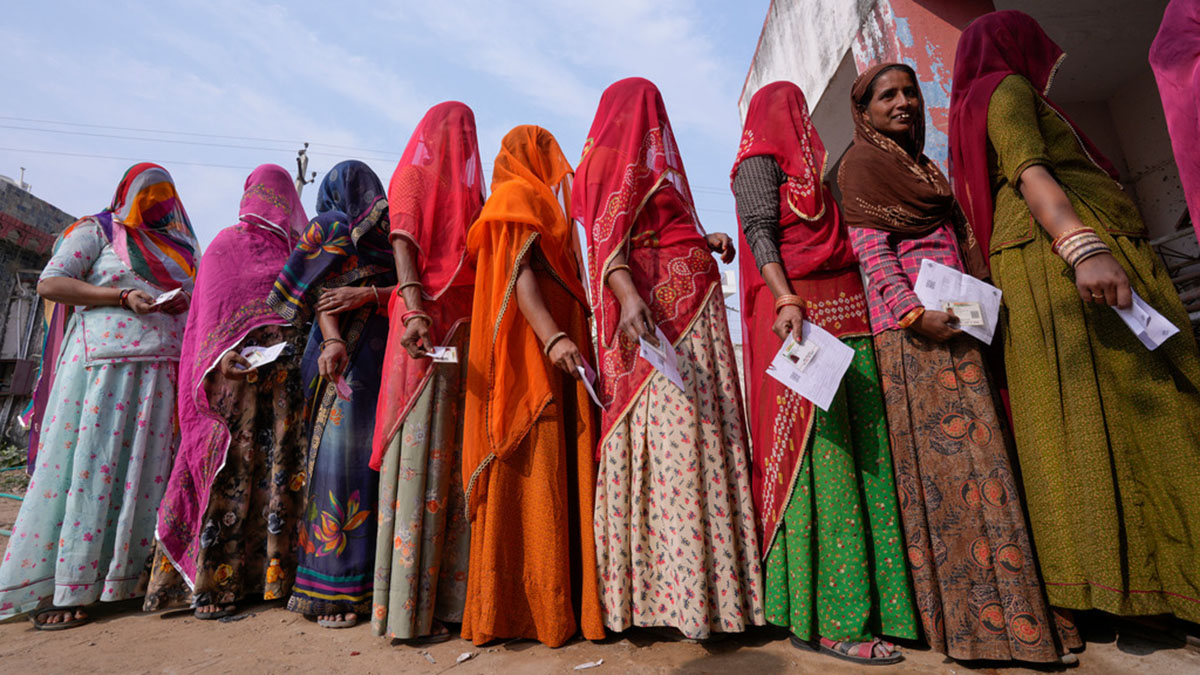As the newly appointed Election Commissioners take charge, the election process of India and its significance as the largest democracy in the world needs to be highlighted from a human rights perspective. This year, it is estimated that there are 969 million voters will cast their vote to elect the Central government of India. This is an extraordinary celebration of democracy in the entire world.
The international community will be observing such a celebration of democracy which has recognised the principles of democracy under Article 21 of the UDHR which states that “The will of the people shall be the basis of the authority of government; this will shall be expressed in periodic and genuine elections which shall be by universal and equal suffrage and shall be held by secret vote or by equivalent free voting procedures.”
Democracy is about achieving a balance between dissent and agreement and not a zero-sum scorched attack on anyone who does not follow the orthodoxy of one political group. This sentiment was also echoed during the 1993 Vienna World Conference on Human Rights, according to its final statement, “Democracy, development and respect for human rights and fundamental freedoms are interdependent and mutually reinforcing.”
This idea of democracy is further supplemented by the views expressed by former United Nations secretary-general Boutros-Boutros Ghali argued that “human rights, equal rights and government under the law are important attributes of democracy.
Coming back to India, there are 543 Lok Sabha seats are there across India and a few thousand candidates contest this election who belong to different political parties which are organised groups possessing common views on governance and mobilise the electorate, set agendas and indulge in political propagation. The process got started and the Model Code of Conduct has been implemented which is a set of minimum standard and codes for political parties their candidates and supporters to adhere to, to ensure free and fair elections.
These elections happen every five years to elect the Central government of India. This use of adult franchise is a possible example of the internal right to self-determination. Different kinds of literature suggest that the right to self-determination is not only limited to the colonial context, in modern times it is divided into two types. First is external self-determination and the other is international self-determination. Internal self-determination is the right of the people of a State to govern themselves without outside interference. self-determination is about having a voice and a choice. In broad strokes, self-determination means that all people have the right to direct their futures. It means that they have a right to control how they live their lives, where they live and with whom they live and it means they have a right to exercise authority over the resources that support them.
Impact Shorts
More ShortsThe people of India get this right to internal self-determination every five years. This is an extraordinary opportunity for determining the right to decide their political, economic, and social rights. This right is an example of collective human rights recognised in the United Nations Charter and other international documents. International Court of Justice in the East Timor case said that the right to self-determination is a jus cogens principle of international law and therefore any derogation is not possible. The regular elections apply the international legal principle in the municipal legal system.
In this context, it ultimately leads to the discussion of whether there should exist a right to democracy as a human right. If the right to democracy is enshrined in the constitutions of countries, it would ensure growth, development and security.
The author is Assistant Professor, OP Jindal Global University. Views expressed in the above piece are personal and solely that of the author. They do not necessarily reflect Firstpost’s views.


)

)
)
)
)
)
)
)
)



